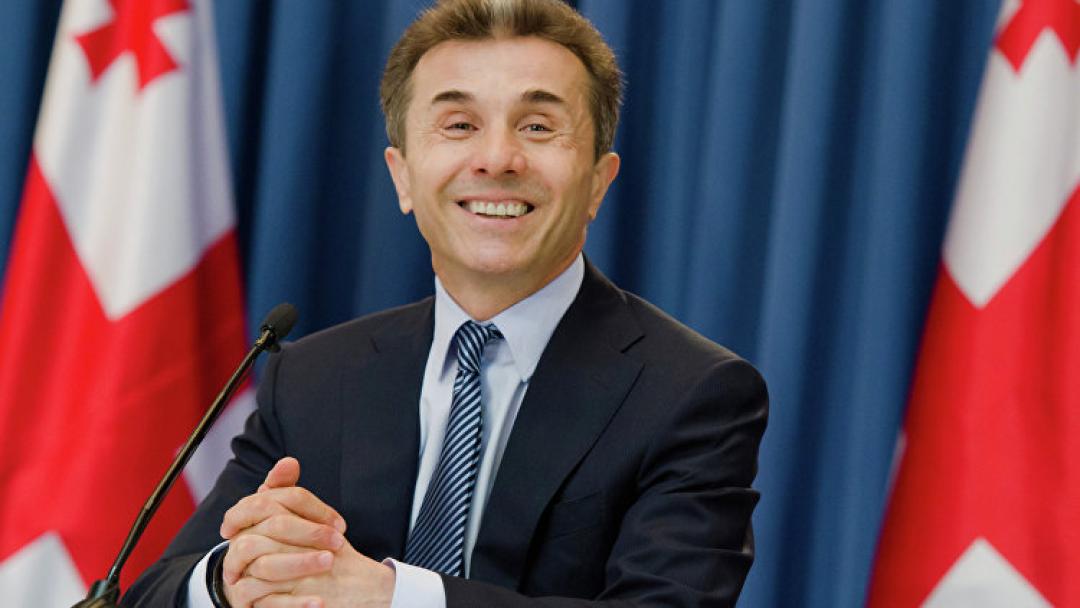
Ivanishvili quits politics

On 11 January, the founder and chair of the ruling Georgian Dream party (GD) Bidzinda Ivanishvili announced that he is leaving his party and will retire from politics.
“I have made the decision to finally retire from politics and fully distance myself from the reins of power. I am leaving the post of party chairman, as well as the party itself and am returning to my pre-2011, private lifestyle. I will turn 65 years old in just a few weeks, and this is one of the important factors in making the decision to retire from politics,” Ivanishvili said, adding that the step “which is dictated by the desire to advance young people to the forefront...will not only not weaken, but will, in fact, further strengthen the ruling party.”
Ivanishvili emphasised that he had two goals when entering politics in 2011: 1) to put an end to the regime of Georgia’s former President Mikhaeil Saakashvili and 2) to allow the country’s Euro-Atlantic integration. In relation to his first goal, Ivanishvili described the rule of Saakashvili over the country as “violent, inhumane, and undemocratic.” He was especially critical towards the economic and media situation in Georgia during that time. “Let us also call to mind the dire economic situation, how all business activities were controlled in the country, how the Prosecutor’s Office and Financial Police leeched [money from] businesses, the scale of the sense of fear, and the nature of the actual investment environment. All larger businesses without exception were held hostage by the authorities and pushed around to provide support,” he stated in relation to the first issue.
“You all remember the media and its form at a time. The ruling party had captured and fully controlled all three national broadcasters. Party leaders ran the news in line with their political agenda, determined the rundown, and even personally wrote texts for the news! It took years to restore justice at these captured TV stations. Unfortunately, the machine of lies described above continues to work to this day because both the political client in Mikheil Saakashvili and the providers in party functionaries and journalists turned media managers are still very much around,” Ivanishvili emphasised in relation to the second issue. “Today, this evil has been significantly weakened. However, its harmful effects can still be felt, and the Georgian Dream remains its main deterrent to this day,” he noted.
He also stated that in contrast to the activities of the former ruling United National Movement (UNM) regime, the results of the eight-year governance of the GD were peace, open and pluralist democracy with open public and informational space, parliamentary governance strengthened by constitutional reform, the rejection of the fetishization of the authorities, an institutionally balanced government, a judiciary and public institutions that are detached from politics, the rule of law and equality before it, and the establishment of the practice of fair elections.
Ivanishvili further elaborated that after eight years in power “something unprecedented” has happened in the history of Georgia and his party won parliamentary elections for the third time in a row. He stated that the Georgian people “have withstood unprecedented informational falsehoods and chaos,” and made a choice in favour of the political force “that will never betray the values that united and interconnected the largest part of the Georgian nation in 2012.” He also expressed hope that the opposition parties who refuse to take up their mandates in parliament “will become convinced of the futility of [their] inappropriate attitude towards the interests of the homeland due to political selfishness and Saakashvili’s unbridled desire to seize power.” He added that one of the things that worries him now is that “no state-oriented and responsible opposition has yet been formed in the country that would meet the minimal standards of European parliamentary democracies.”
Georgia’s Prime Minister Giorgi Gakharia also spoke on the occasion of Ivanishvili’s resignation. “The most important thing is that this is a crucial example of how to relinquish power when for the first time in the history of the country your citizens… for the third time support, give legitimacy and [the] mandate to run the country to the team you lead,” he stated. “During these eight years, all of us together have certainly made significant progress, given that it was an extremely difficult and challenging period. It is the protection of human rights, the work of the law enforcement system, the health care system, the further Euro-Atlantic development of our country. This is all that the Georgian people have once again supported,” he said, adding that the fight against the pandemic was another example of Ivanishvili’s crucial influence. Reports already emerged that the current Executive Secretary of the GD Irakli Kobahidze would be elected as Ivanishvili’s successor.
The opposition parties in the country stated that Ivanishvili would continue to rule Georgia despite announcing his retirement from politics. One of the leaders of European Georgia (EG) Gigi Ugulava emphasised that Ivanishvili would exercise his power through the judges and prosecutors in the country. “While chief prosecutor Shotadze or any of Murusidze stands in his living room with thick folders on whom to arrest or release, the power will be in Ivanishvili’s hands. Ivanishvili’s statement today is a manifestation of extreme irresponsibility and weakness. It is irresponsible when you rule the country for eight years, and a triple debt falls on the country after your rule. It is irresponsible to run away amid the pandemic while you and your people bear the responsibility,” he said. Roman Gotsiridze from the UNM stated that Ivanishvili would continue running the country from the backstage, adding that he would only definitely leave politics after the government has changed in the country.
See Also


Simonyan: “Armenia Should Trade with Turkey and Azerbaijan Instead of Closing Borders”

Mirzoyan Meets US Deputy Assistant Secretary Joshua Huck

Azerbaijani President Holds Talks with UAE and German Business Delegations on Economic Cooperation

Grigoryan Confirms Armenia’s Readiness to Dissolve OSCE Minsk Group Upon Peace Treaty Signing

